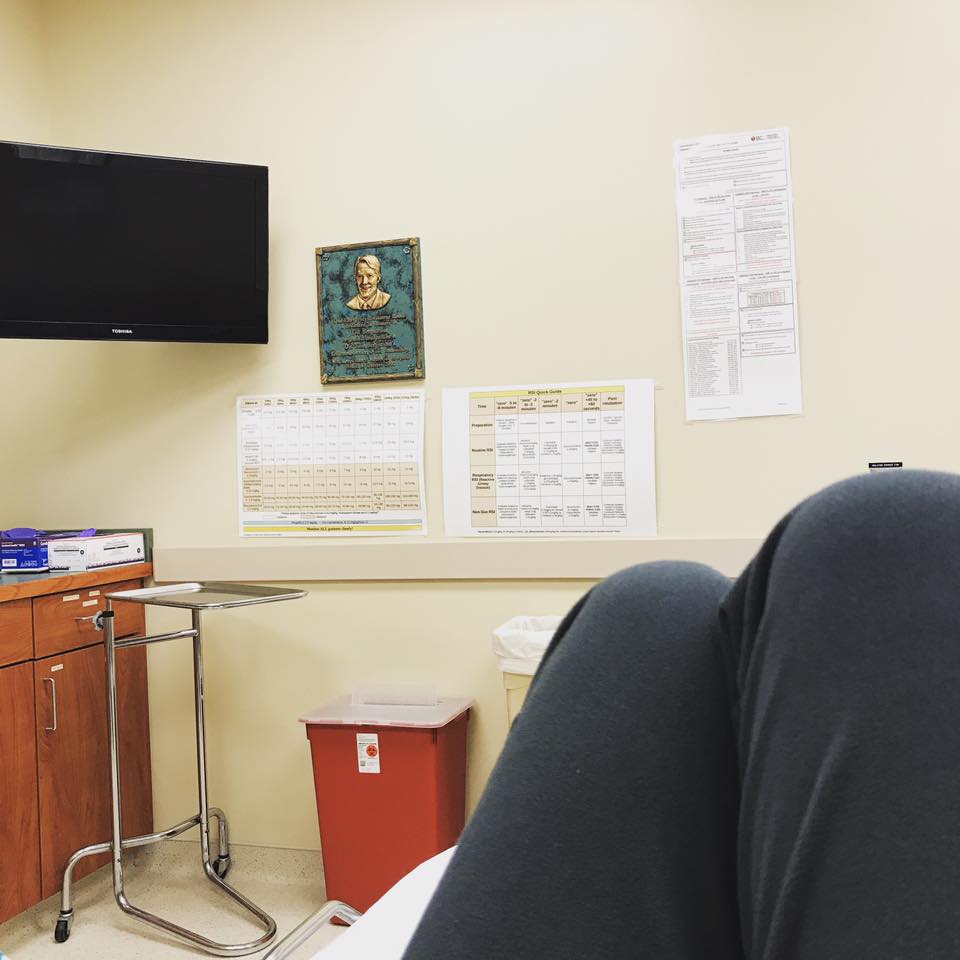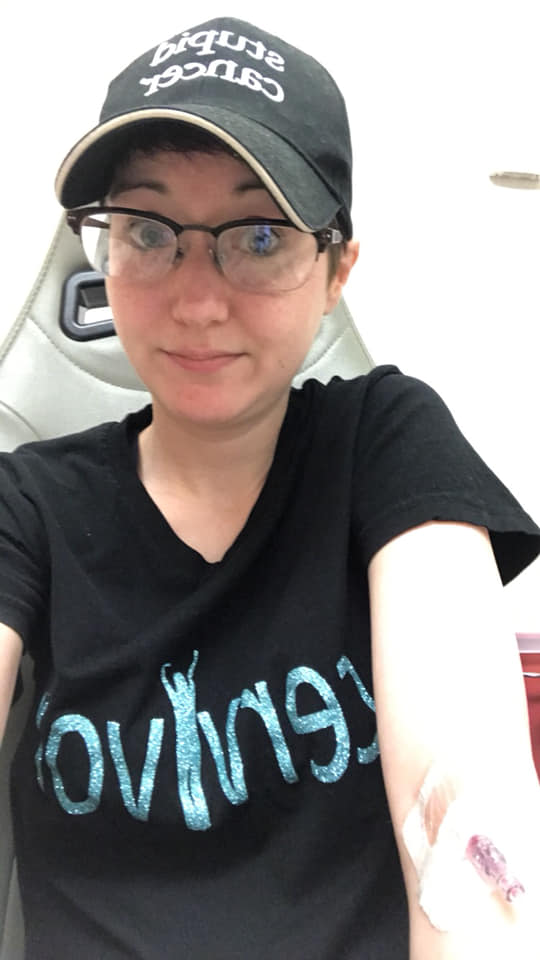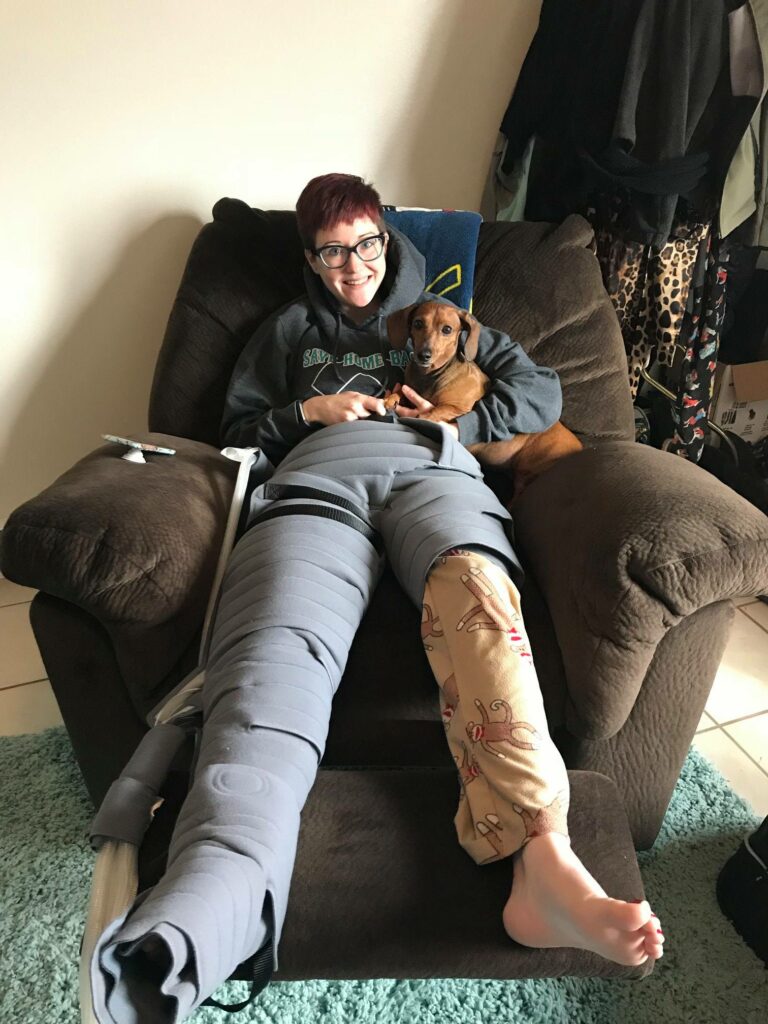I’ve always been a person that believes communication is of the upmost importance. When I was a child I suffered from terrible social anxiety. It prevented me from asking for things, yet somehow my parents always knew how to respond in a way I needed most. As I grew older, I realized how important communication was in building and maintaining new friendships and relationships.

When I was diagnosed with cervical cancer for the first time at age 24, communication continued to be such an important factor in the patient-provider relationship. It was difficult with all of the emotions involved. There was a lot of fear of the unknown and tensions rose. Most of the time, I was at a loss for words and didn’t know what kind of questions to ask. The physician assistant was the liaison to my oncologist and she eased a lot of my worries. I felt that I was naïve, and I took the stance of assuming that my oncologist knew what I was going through. I was wrong. As I sit here and reflect on everything now, I believe he was under the assumption that I too understood everything as well.
What I didn’t anticipate was the thought of cancer being such a complex and life altering disease. I became frustrated and angry whenever something didn’t go as expected. My defense mechanisms forged their way between my oncologist and me. It took me a couple years to figure out that I was indeed a human and not a superhuman like everyone thought I was. The ease of communication wasn’t always there. I felt stuck…a lot.
It wasn’t until I went through a metastatic recurrence that I really started advocating for myself and asking the questions that came to fruition. I felt it was the only way to finally start feeling control over my destiny and I was right. Even though it was the most feasible thing for me to do, I decided to seek a second opinion with a different oncologist nearly three and a half hours from where I live. I’m so thankful I did.
My new oncologist was extremely receptive to my anxious, fear-filled questions. He took nearly twice the amount of time with me just to confirm we were on the same page. When I left his office, he even followed up with a phone call. It really opened my eyes to the fact that this one individual is seeing an ungodly number of women from all over the world and he was still able to treat each one of us as if we were his top priority. I will never forget it!

Being a young adult cancer patient was tough. I turned 26 and I was essentially booted off of my mother’s insurance. I was paying a hefty premium, co-insurance, hotel and gas in order to receive the care I never had before. It became unfeasible and at the time I didn’t know where to turn for resources. The ones I thought I could seek had nothing left to offer to me.
I again started seeing an oncologist close to home and again, I faced a communication barrier. My post treatment side effects were taking over and essentially degrading my quality of life. Had I not been in school for social work at this time, and involved in patient advocacy, I would be too scared to tell this provider that he was not suitable to my needs and that I would be going back to my oncologist located three and a half hours away.

Once I went back to my previous oncologist, my issues were addressed immediately. I had referrals to address my lymphedema, gastrointestinal issues, hormone replacement therapy and osteoporosis. It was an overwhelming number of tests, but I received the answers I was seeking and my symptoms improved.
I have come to find out that I am a reflective person and frequently process through life events both large and small. It’s how I am able to cope with everything. One thing that being a patient advocate has taught me is how to tell my story, to know what I need, and how to ask for it. I must also give credit to the skills I have obtained and utilized as a social worker – I’ve learned where I can go for services and support. But even though I possess this knowledge, there are still a ton of things I don’t know and don’t understand. There are also several questions I find I’m still asking myself. One in particular I find myself coming back to: I wonder how many women have been in my position, who are uninformed of all of their options and resources, or are too scared to ask for what they need from their provider(s). This is a strong indication of how important communication skills are for both the patient and the provider.
Morgan is a metastatic cervical cancer survivor, Cervivor Ambassador, and the 2018 Cervivor Champion recipient. She lives and works in Winterset, IA as a dental assistant turned office manager, and she has the sweetest dachshund named Sassy. Morgan is currently in the middle of finishing her Masters in Social Work with the University of Iowa. She continues to advocate tirelessly in hopes her story can help others.